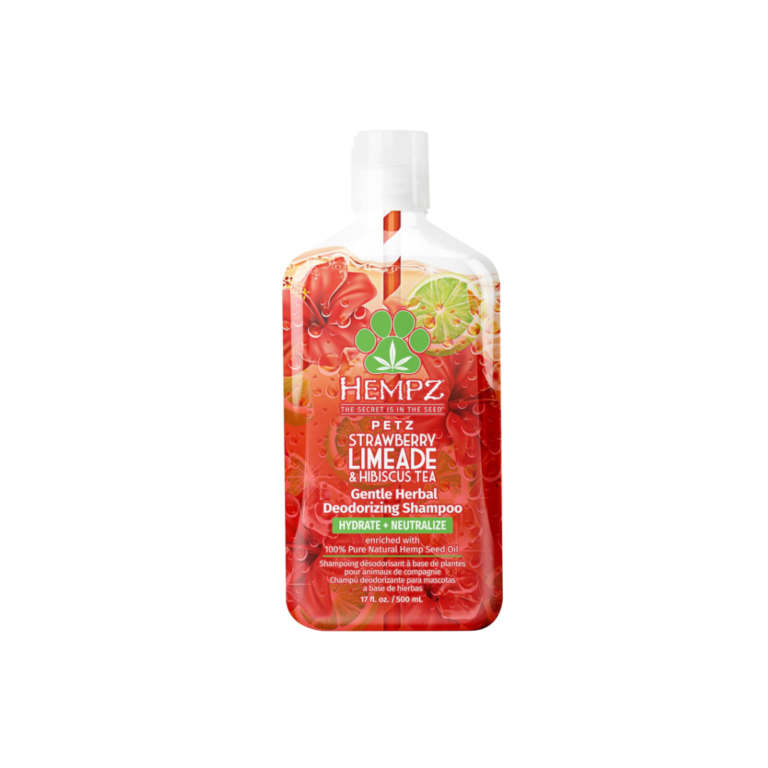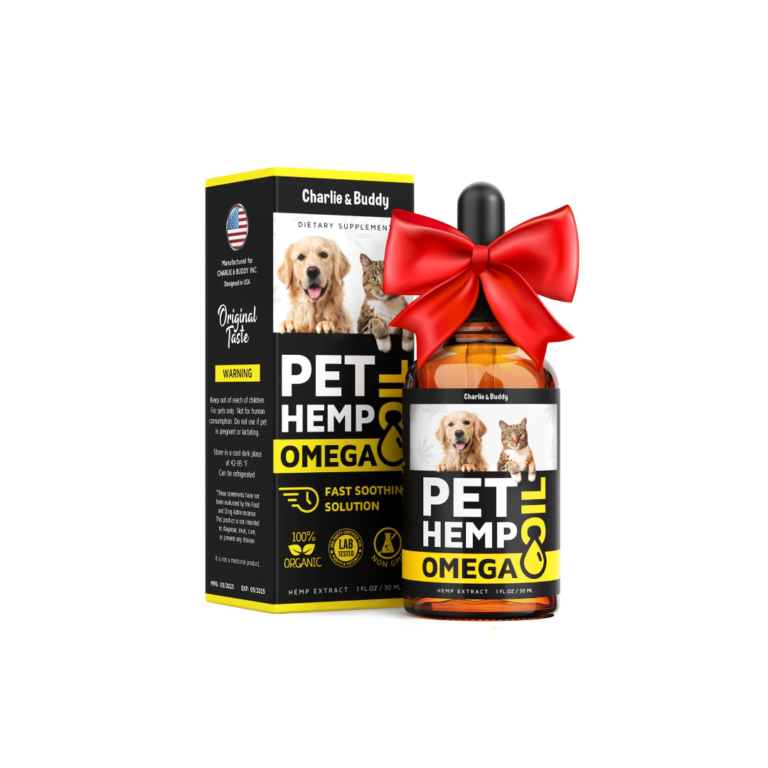Integrating Natural Remedies in Pet Care: Do’s and Don’ts : Exploring the safe and effective use of natural remedies in pet care, including what to use and what to avoid.
Integrating natural remedies in pet care can be a safe and effective way to support your pet’s health and well-being. Natural remedies, such as herbal remedies, essential oils, homeopathic remedies, and nutritional supplements, can help address common pet ailments and promote optimal pet care. However, it’s important to be aware of the do’s and don’ts when using natural remedies for pets. This article explores the safe and effective use of natural remedies in pet care, including what to use and what to avoid.
Key Takeaways
- Consider the benefits and factors before using natural remedies for pets.
- Herbal remedies, essential oils, homeopathic remedies, and nutritional supplements can be safe and effective for addressing common pet ailments.
- Be cautious of toxic plants and substances that can be harmful to pets.
- Consult with a veterinarian before using natural remedies for pets.
- Create a natural remedies first aid kit for pets and incorporate natural remedies into pet grooming, behavioral issues, and overall pet care routine.
Understanding Natural Remedies for Pet Care

What are Natural Remedies?
Natural remedies are alternative treatments that can be used to promote the health and well-being of your pet. These remedies are derived from natural sources such as plants, herbs, essential oils, and nutritional supplements. They are often used as a holistic approach to pet care, focusing on the body’s natural ability to heal itself. Natural remedies can provide relief from common ailments, support overall wellness, and enhance the quality of life for your furry friend.
Benefits of Using Natural Remedies for Pets
Using natural remedies for pet care can provide numerous benefits for your furry friend. Not only are these remedies often gentle and safe, but they can also be effective in promoting your pet’s overall health and well-being. Natural remedies can help alleviate common ailments and support your pet’s immune system. They can also be a valuable addition to your pet’s diet, providing essential nutrients and promoting gut health. By incorporating natural remedies into your pet’s care routine, you can enhance their quality of life and ensure they receive the best possible care.
Factors to Consider Before Using Natural Remedies
Before incorporating natural remedies into your pet’s care routine, there are a few factors to consider. First, it’s important to consult with your veterinarian to ensure that the remedies you choose are safe and appropriate for your pet’s specific needs. Your veterinarian can provide guidance on dosage, potential interactions with other medications, and any potential side effects to watch out for.
Second, it’s essential to carefully research and select high-quality natural remedies. Look for reputable brands that use organic ingredients and have undergone rigorous testing for purity and effectiveness.
Third, consider your pet’s individual health condition and any underlying medical issues. Some natural remedies may not be suitable for pets with certain health conditions or may require adjustments in dosage. Always follow the recommended guidelines and monitor your pet’s response to the remedies.
Lastly, it’s important to have realistic expectations. Natural remedies may take time to show results, and they may not be a cure-all for every ailment. It’s important to be patient and consistent in your approach, and to seek veterinary advice if you have any concerns or questions.
Safe and Effective Natural Remedies for Pet Care

Herbal Remedies for Common Pet Ailments
When it comes to addressing common pet ailments, herbal remedies have become a popular trend among pet owners. These natural alternatives offer a gentle and holistic approach to promoting your pet’s health and well-being. Herbs such as chamomile, lavender, and calendula are known for their soothing properties and can be used to alleviate skin irritations, allergies, and minor wounds. Echinacea is another herb that is commonly used to boost the immune system and help fight off infections. Peppermint and ginger are often used to aid digestion and relieve gastrointestinal discomfort. It’s important to note that while herbal remedies can be effective, they should always be used under the guidance of a veterinarian to ensure the safety and well-being of your pet.
Essential Oils for Pet Wellness
When it comes to promoting wellness in your pet, essential oils can be a valuable tool. These concentrated plant extracts have been used for centuries to support various aspects of health. Essential oils can be used topically, diffused, or ingested, but it’s important to remember that not all oils are safe for pets. It’s crucial to do your research and consult with a veterinarian before using any essential oils on your furry friend.
Here are some important points to keep in mind when using essential oils for pet wellness:
- Choose high-quality, therapeutic-grade oils that are safe for pets.
- Dilute the oils properly before applying them to your pet’s skin.
- Avoid using oils that are toxic to pets, such as tea tree oil, eucalyptus oil, and citrus oils.
- Start with small amounts and observe your pet’s reaction before using larger quantities.
Remember, the well-being of your pet is a top priority, so always prioritize their safety and consult with a professional before introducing any new remedies or treatments.
Homeopathic Remedies for Pet Health
When it comes to maintaining your pet’s health, homeopathic remedies can be a valuable tool. These remedies are derived from natural substances and are believed to stimulate the body’s own healing mechanisms. Homeopathic remedies are safe, gentle, and effective, making them a popular choice for pet owners looking for alternative treatments. They can be used to address a variety of health issues, including skin conditions, digestive problems, and anxiety.
One of the key benefits of homeopathic remedies is their ability to support the overall well-being of your pet. They can help boost the immune system, promote emotional balance, and improve vitality. Additionally, homeopathic remedies are non-toxic and non-addictive, making them a safe option for long-term use.
When using homeopathic remedies for your pet, it’s important to consult with a qualified veterinarian who is knowledgeable in homeopathy. They can help determine the most appropriate remedies for your pet’s specific needs and provide guidance on proper dosages.
To incorporate homeopathic remedies into your pet’s care routine, consider creating a natural remedies first aid kit. This kit can include essential remedies for common ailments, such as Arnica for injuries and Calendula for wound healing. It’s also important to monitor and adjust the remedies as needed to ensure optimal results.
Remember, while homeopathic remedies can be beneficial for your pet’s health, they should not replace traditional veterinary care. If your pet is experiencing a serious health issue, it’s always best to seek professional medical advice.
Nutritional Supplements for Optimal Pet Care
When it comes to providing optimal care for your pet, nutritional supplements can play a crucial role. These supplements are designed to support your pet’s overall health and address specific needs. Whether your pet needs a boost in their immune system, joint support, or improved digestion, there are nutritional supplements available to help. CATLK Cat Litter Box is one such supplement that can help maintain a clean and odor-free litter box for your cat. By incorporating nutritional supplements into your pet’s daily routine, you can ensure they are getting the essential nutrients they need for a healthy and happy life.
Avoiding Harmful Natural Remedies in Pet Care

Toxic Plants and Substances to Avoid
When it comes to the safety of your pet, it’s important to be aware of the toxic plants and substances that can be harmful to them. Some common plants that are toxic to pets include lilies, azaleas, and tulips. These plants can cause symptoms such as vomiting, diarrhea, and even organ failure if ingested. It’s also important to keep your pet away from substances like chocolate, caffeine, and xylitol, as these can be toxic as well. NaturVet hemp products are a popular choice for pet owners looking for natural remedies, but it’s important to note that not all hemp products are safe for pets. Some hemp products may contain THC, which can be toxic to animals. Always consult with your veterinarian before using any natural remedies or supplements for your pet’s health and well-being.
Common Natural Remedies That Can Be Harmful to Pets
When it comes to natural remedies for your pets, it’s important to be aware of the potential risks and dangers. While many natural remedies can be beneficial for pets, there are some that can actually be harmful. It’s crucial to educate yourself about these remedies and avoid using them to ensure the safety and well-being of your furry friends.
Here are some common natural remedies that can be harmful to pets:
-
Essential Oils: While essential oils have gained popularity for their various benefits, they can be toxic to pets, especially cats. Certain oils, such as tea tree oil and eucalyptus oil, can cause skin irritation, respiratory issues, and even liver damage in pets. It’s best to keep essential oils out of reach of your pets and consult with a veterinarian before using them.
-
Herbal Supplements: Some herbal supplements that are safe for humans may not be safe for pets. For example, certain herbs like garlic and onions can be toxic to dogs and cats, causing anemia and other health issues. Always check with your veterinarian before giving your pets any herbal supplements.
-
Homeopathic Remedies: While homeopathic remedies can be effective for humans, they may not have the same effect on pets. Some homeopathic remedies can interact with medications or have adverse effects on pets. It’s important to consult with a veterinarian who is knowledgeable about homeopathy before using these remedies on your pets.
Remember, the well-being of your pets should always be your top priority. If you’re unsure about the safety of a natural remedy, it’s best to consult with a veterinarian who can provide you with expert advice and guidance.
Consulting with a Veterinarian Before Using Natural Remedies
Before incorporating any natural remedies into your pet’s care routine, it is crucial to consult with a veterinarian. Your pet’s health and well-being should always be the top priority, and a veterinarian can provide valuable guidance and expertise. They can assess your pet’s specific needs and medical history to determine the most appropriate natural remedies to use. Additionally, a veterinarian can help identify any potential interactions or contraindications with other medications or treatments your pet may be receiving. By consulting with a veterinarian, you can ensure that the natural remedies you choose are safe, effective, and tailored to your pet’s individual needs.
Integrating Natural Remedies into Your Pet’s Care Routine

Creating a Natural Remedies First Aid Kit for Pets
When it comes to taking care of your pet’s health, having a well-stocked first aid kit is essential. A Natural Remedies First Aid Kit can provide you with the tools you need to address minor injuries and ailments in a safe and effective way. Here are some key items to include in your kit:
-
Hempz Petz dog paw balm: This soothing balm is perfect for treating dry or cracked paws. Its natural ingredients help moisturize and protect your pet’s paws, providing relief from discomfort.
-
Bandages and gauze pads: These are essential for covering wounds and controlling bleeding. Make sure to have a variety of sizes to accommodate different injuries.
-
Antiseptic wipes: These wipes can be used to clean wounds and prevent infection. Look for ones that are safe for use on pets.
-
Tweezers: Tweezers are handy for removing splinters or ticks from your pet’s skin.
-
Saline solution: Saline solution can be used to flush out wounds or clean your pet’s eyes.
Remember, it’s important to consult with your veterinarian before using any natural remedies on your pet. They can provide guidance on the appropriate use and dosage for your furry friend’s specific needs. By having a well-stocked first aid kit and knowing how to use it, you can be prepared to handle minor health issues and provide your pet with the care they deserve.
Incorporating Natural Remedies in Pet Grooming
When it comes to grooming your pet, incorporating natural remedies can provide numerous benefits. Advanced technology has made it easier than ever to find natural grooming products that are safe and effective for your furry friend. These products are often made with natural ingredients that promote healthy skin and coat, while avoiding harsh chemicals that can cause irritation or allergic reactions. By using natural remedies in your pet’s grooming routine, you can help maintain their overall health and well-being.
One way to incorporate natural remedies in pet grooming is by using herbal shampoos. These shampoos are made with plant-based ingredients that can soothe and nourish your pet’s skin, while also providing a pleasant scent. Additionally, essential oils can be used to freshen up your pet’s coat and repel fleas and ticks. However, it’s important to note that not all essential oils are safe for pets, so it’s crucial to do your research and consult with a veterinarian before using them.
Another natural remedy to consider is homemade grooming solutions. You can create your own pet-friendly grooming products using ingredients like baking soda, coconut oil, and apple cider vinegar. These natural ingredients can help clean and condition your pet’s coat, without exposing them to harmful chemicals. Additionally, regular brushing with a natural bristle brush can help distribute natural oils and remove loose hair, keeping your pet’s coat healthy and shiny.
Incorporating natural remedies in pet grooming is not only beneficial for your pet’s physical health, but it can also have a positive impact on their emotional well-being. Grooming sessions can be a bonding experience between you and your pet, and using natural products can create a calming and soothing environment. Remember to always introduce new grooming products gradually and observe your pet’s reaction. If you notice any signs of discomfort or allergic reactions, discontinue use and consult with a veterinarian.
To summarize, incorporating natural remedies in pet grooming can provide numerous benefits for your furry friend. From using herbal shampoos to homemade grooming solutions, there are plenty of natural options to choose from. Just remember to do your research, consult with a veterinarian, and observe your pet’s reaction to ensure their safety and well-being.
Using Natural Remedies for Behavioral Issues
When it comes to addressing behavioral issues in your pet, natural remedies can be a valuable tool. CBD, for example, has gained popularity for its potential to calm anxiety and promote relaxation in dogs. Research has shown that CBD may have a positive impact on the effects of CBD on dogs. It’s important to note that while CBD can be beneficial, it’s essential to consult with your veterinarian before introducing any new remedies to your pet’s routine. They can provide guidance on the appropriate dosage and ensure that it won’t interact negatively with any medications your pet may be taking. Additionally, implementing positive reinforcement techniques and providing a structured environment can also contribute to addressing behavioral issues in your pet. Remember, patience and consistency are key when using natural remedies for behavioral issues.
Monitoring and Adjusting Natural Remedies for Optimal Results
When incorporating natural remedies into your pet’s care routine, it’s important to monitor their effects and make adjustments as needed. Moisturize paws are one aspect of pet care that may require monitoring and adjustment. Dry or cracked paws can be uncomfortable for your pet and may indicate a need for additional care. Regularly check your pet’s paws for any signs of dryness or irritation. If necessary, apply a pet-safe moisturizer to keep their paws hydrated and healthy. It’s also important to consider the underlying cause of dry paws, such as environmental factors or allergies, and address those issues as well. By monitoring and adjusting the care of your pet’s paws, you can ensure they stay comfortable and happy.
Integrating natural remedies into your pet’s care routine is a great way to promote their overall health and well-being. At Whisker Wellbeing, we understand the importance of holistic and natural care for pets. Our website offers a variety of products, including CBD, hemp, and other natural options, all designed to enhance the physical and emotional quality of life of pets. Whether you have a cat or a dog, we have the perfect solutions to meet their unique needs. Visit our website today to explore our range of products and give your furry friend the care they deserve.
Conclusion
In conclusion, integrating natural remedies in pet care can be a safe and effective way to support your pet’s health. However, it is important to be cautious and informed about what remedies to use and what to avoid. Natural remedies such as herbal supplements, essential oils, and acupuncture can provide benefits such as relief from anxiety, improved digestion, and enhanced immune function. On the other hand, it is crucial to avoid certain remedies that can be toxic to pets, such as certain essential oils, garlic, and chocolate. Always consult with a veterinarian before introducing any new remedies to your pet’s care routine. By following these do’s and don’ts, you can ensure the well-being and happiness of your furry friend.
Frequently Asked Questions
Are natural remedies safe for pets?
Natural remedies can be safe for pets when used correctly and under the guidance of a veterinarian. However, it is important to note that not all natural remedies are safe for all pets. Some pets may have allergies or sensitivities to certain herbs, oils, or supplements. It is always best to consult with a veterinarian before using natural remedies on your pet.
What are some common herbal remedies for pet ailments?
There are several common herbal remedies that can be used to treat various pet ailments. Some examples include chamomile for calming, ginger for digestive issues, and calendula for skin irritations. However, it is important to research and consult with a veterinarian to ensure the correct dosage and usage for each herb.
Can essential oils be used on pets?
Some essential oils can be used on pets, but it is important to use them with caution. Pets have a more sensitive sense of smell than humans, so certain oils can be overwhelming or even toxic to them. Always dilute essential oils and avoid using them on or near the face of your pet. It is also recommended to consult with a veterinarian before using essential oils on your pet.
Are homeopathic remedies effective for pet health?
Homeopathic remedies can be effective for certain pet health conditions. However, it is important to note that the effectiveness of homeopathic remedies can vary depending on the individual pet and the specific condition being treated. It is best to consult with a veterinarian who is knowledgeable in homeopathy to determine the appropriate remedies for your pet.
What nutritional supplements are beneficial for pets?
There are several nutritional supplements that can be beneficial for pets, such as omega-3 fatty acids for joint health, probiotics for digestive health, and glucosamine for cartilage support. However, it is important to consult with a veterinarian to determine the appropriate dosage and type of supplements for your pet’s specific needs.
What natural remedies should I avoid using on my pet?
There are certain natural remedies that should be avoided when it comes to pet care. Some examples include tea tree oil, which can be toxic to pets, and certain herbs like pennyroyal and yucca, which can be harmful if ingested. It is always best to research and consult with a veterinarian before using any natural remedies on your pet.






